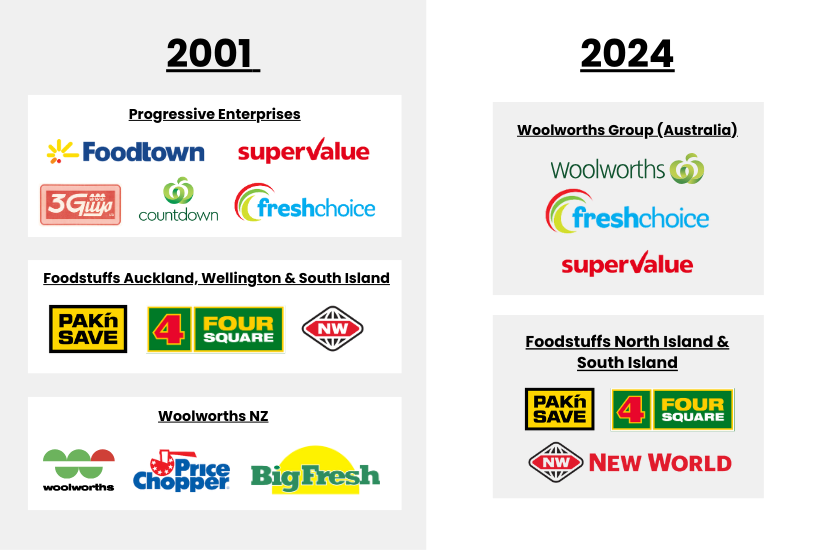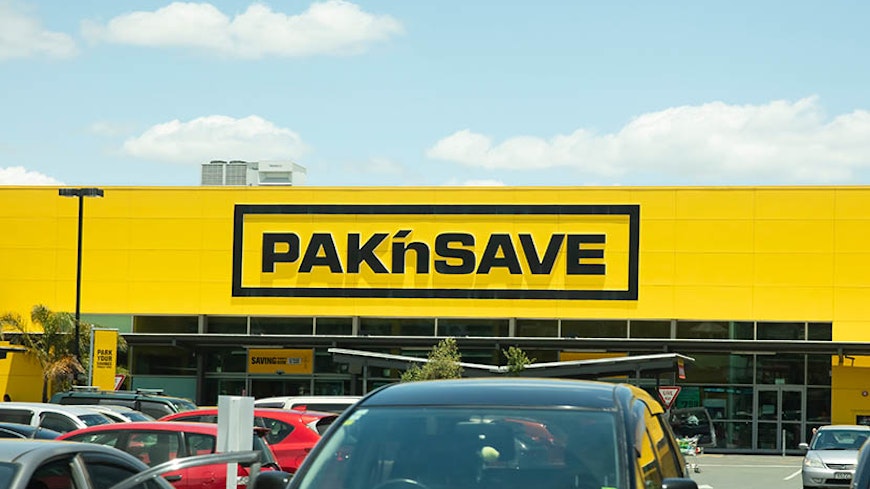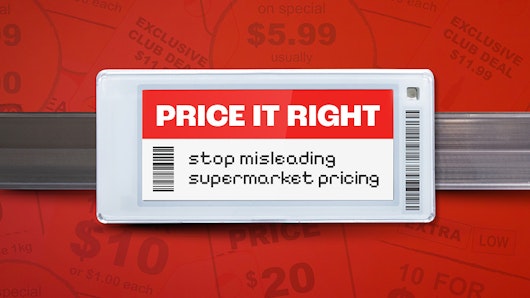
By Rebecca Styles
Research Lead | Hautū Rangahau
Mergers and acquisitions between grocery giants over the past 20 years have landed us with a supermarket sector where two players hold a 90% market share. By international standards, that is not good. We’ve since had a market study into competition – but has that changed anything? And why is another merger being proposed? We look at the state of supermarkets.
A delve into the Consumer NZ archive shows we used to have a lot of choice about where to do our weekly supermarket shop.
Back in 2001, Auckland and Christchurch shoppers had the choice of eight supermarket chains. Hamilton and Dunedin had five chains and Wellington had six.
Supermarket names like 3 Guys, Price Chopper and Big Fresh are a distant memory. Now we mostly have access to the main players: Pak n’Save, New World and Woolworths (formerly Countdown).

So, how did our choice get so limited and what’s being done to increase competition in the supermarket sector?
How did we get here?
A series of merger applications and buyouts laid the groundwork for our current supermarket duopoly.
When it comes to the approval of supermarket mergers you “can't uncook a chicken” – meaning once consolidation occurs it can be really difficult to reintroduce that former level of retail competition.
In 2001, Progressive Enterprises owned Foodtown, Countdown and 3 Guys and was the wholesale supplier for Supervalue and Big Fresh. Progressive applied to merge with Woolworths NZ, Big Fresh and Price Chopper. This is a seminal moment in our supermarket history.
Initially the merger was accepted, subject to Progressive Enterprises selling three supermarkets (two in Te Awamutu and one in Birkenhead, Auckland). However, Foodstuffs Auckland appealed to the High Court in a wrangle over which competition measure was used (Progressives had applied for the merger before legislation that would change the competition measure went through) – and won. At the time, Foodstuffs was three entities – Auckland, Wellington and South Island.
Progressive Enterprises then appealed the High Court decision to the Privy Council and won, leading to the merger of six supermarket chains in June 2002.
In 2005, Woolworths Australia bought Progressive Enterprises. A group of anonymous suppliers complained to the Commerce Commission about the purchase, saying it could lessen competition in the sector and was a potential breach in legislation. But the investigation was hampered by the anonymity of the suppliers. The Commission found it was unlikely the purchase would result in “substantial lessening of competition”.
In 2013, the Auckland and Wellington arms of Foodstuffs merged, leaving us with two Foodstuffs entities: North and South Island (who now want to merge – see “Yet another possible merger”).
The supermarkets have also gained control of wholesale supply chains (called “vertical integration”). Wholesale Distributors is owned by and predominately sells food to Woolworths. While Trents is owned by and supplies Foodstuffs South Island, and Gilmours is owned by and supplies Foodstuffs North Island.
While the wholesalers also supply dairies and petrol stations, the Commission’s market study found that those outlets can often get cheaper deals by going straight to the supermarket.
Having wholesalers controlled by the supermarkets makes it hard for a new player to set up, and leaves suppliers at the mercy of the two major supermarket chains.

What the market study into competition found
Fast forward to March 2022, the Commission released its market study into the retail grocery sector fuelled by concerns of a lack of competition.
It found that competition in the sector wasn’t working well for consumers. Prices appeared high by international standards, and the profitability of the main players – Foodstuffs and Woolworths – was deemed to be “excessive”.
Competition is muted, the Commission said, with “significant challenges” for a new player wanting to set up because of a lack of sites and difficulty accessing a wholesale supply chain.
The report also found there was a power imbalance between suppliers and the supermarkets because suppliers’ goods could be taken off shelves if they didn’t agree to the supermarkets’ terms.
The Commission said this situation could reduce “the ability and incentive for suppliers to invest and innovate” and in the long run reduces choice for consumers.

Make supermarkets price it right
Find out about our campaign to tell the government we need clear rules, stronger penalties and automatic compensation for shoppers.
Has anything improved since the market study?
Shoppers are unlikely to have seen any big improvements since the market study. Groceries are still expensive, and no other major competitor has entered the market, though mandatory unit pricing will mean it’s easier to compare the prices of products.
The Grocery Commissioner Pierre van Heerden has been appointment to monitor the sector. And a Grocery Code of Conduct has been developed to ensure suppliers get a fair deal when dealing with the major supermarkets. If the code is breached there are heavy fines.
However, the code is currently being reviewed, less than a year after it came into force, because “there are concerns that systemic issues are not being addressed and suppliers may not be benefiting” from the code.
It’s not exactly encouraging that it may need changes so soon after it was introduced.
New legislation has also been passed to establish a wholesale regime so that it’s easier for new entrants to enter the market, as well as laws to stop supermarkets placing restrictive covenants on land use and exclusivity covenants in leases (commonly known as land banking).
Just last week, Foodstuffs North Island was hit with a $3.25m fine in the Wellington High Court for blocking rivals from setting up nearby. The court action followed a Commission investigation into historical conduct discovered during the 2022 market study.
While the measures that have been put in place by the grocery commissioner can be seen as positive steps, it's hardly the seismic shake up our supermarket sectors appears to so desperately need.
The real proof of meaningful change for shoppers would be a competitor entering the grocery sector who competes with the duopoly on price.
Yet another possible merger
In this climate of “muted” competition, another merger in the grocery sector is being assessed by the Commission. Foodstuffs wants to combine its North and South Island operations under one national entity.
The Commission must assess whether the merger will substantially lessen competition. It recently released a list of unresolved issues it has with the potential merger and is calling for submissions.
Those issues include the potential lessening of competition and the impact on suppliers because the avenues to sell their goods goes from three to two supermarkets. It also noted that it’s unlikely for another competitor to enter the market.
In a statement, Foodstuffs North Island said it looked forward to providing the Commission with a further submission. It still backs its merger proposal and said, “we believe it’s the right thing to do for New Zealand right now”.
Foodstuffs said in a series of press releases that the merger will make the supermarket more efficient for its operations and “deliver better value for customers at the checkout, as well for wholesale customers”. It doesn’t believe the merger will lessen competition.
We’re highly dubious of that position. Merging the North and South Island Foodstuffs will create an even more dominant player in the grocery sector. Suppliers could be further squeezed, and it’s highly unlikely any economies gained through efficiencies will be passed onto shoppers.
As our recent past shows, merging supermarkets doesn’t work for consumers or suppliers.

Subscribe to our newsletters
Get even more Consumer NZ news and invitations to share your voice on important issues straight to your inbox. You don’t have to be a member to have these newsletters emailed to you regularly.



